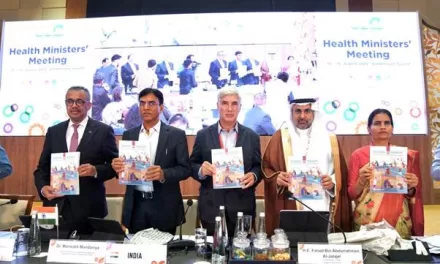Canberra, Australia – A recent study has revealed that a significant majority of Australian parents are deeply concerned about the pervasive marketing of junk food targeting children. The research, conducted by Deakin University and published in the Australian and New Zealand Journal of Public Health, found that 85% of caregivers express worry over this issue.
The study, which surveyed nearly 4,000 adults, also highlighted strong public support for government interventions to protect children from unhealthy food advertisements. More than 60% of respondents favored a ban on marketing unhealthy food and beverages to children. Additionally, policies such as prohibiting junk food advertising on television before 9 pm and removing child-friendly marketing elements like cartoons from unhealthy food packaging garnered significant support.
Lead author Clara Gomez-Donoso from Deakin University’s Global Center for Preventive Health and Nutrition emphasized the broad public backing for stricter regulations across various media and settings. “The research provides a clear picture of Australians’ support for restricting unhealthy food marketing across diverse media and settings,” she stated.
Senior author Professor Kathryn Backholer echoed these concerns, noting the alignment between parental worries and public health expert opinions. “The results show that Australians are concerned about the current situation when it comes to junk food advertising in Australia—and rightly so. Our children can’t walk to school, go to the shops or sit down and watch TV without being bombarded with unhealthy food advertising and it’s affecting their health. Childhood obesity rates are increasing, while preventable disease in our community continues to grow,” she said.
Adj Prof Terry Slevin, CEO of the Public Health Association of Australia, urged political candidates to address the issue ahead of the upcoming federal election. “Obesity in Australia is a public health ticking timebomb and a huge challenge for our nation. It has recently overtaken tobacco as our biggest cause of preventable disease burden,” he said. He called for a shift from solely focusing on healthcare treatment to prioritizing preventative measures, including curbing unhealthy food marketing to children.
Jane Martin, Executive Manager of the Food for Health Alliance, also called for immediate government intervention. “The processed food industry has been left to make its own rules for too long, and its actions put corporate profits ahead of children’s health. The sooner government steps in to protect children from the sheer volume of powerful advertising, the sooner we can start to create a healthier environment for our kids to grow up in, improving their diets, health and well-being. We can’t afford to wait,” Martin concluded.
The study provides compelling evidence of widespread public concern and support for government action to mitigate the impact of junk food marketing on children’s health.
More information: Clara Gomez-Donoso et al, Public support for unhealthy food marketing policies in Australia: A cross-sectional analysis of the International Food Policy Study 2022, Australian and New Zealand Journal of Public Health (2025). DOI: 10.1016/j.anzjph.2025.100231
Disclaimer: This news article is based on the provided information and should not be considered as professional medical or political advice. The findings of the study reflect the opinions and concerns of the surveyed participants and may not represent the views of all Australians. Readers should consult with qualified professionals for personalized advice.












